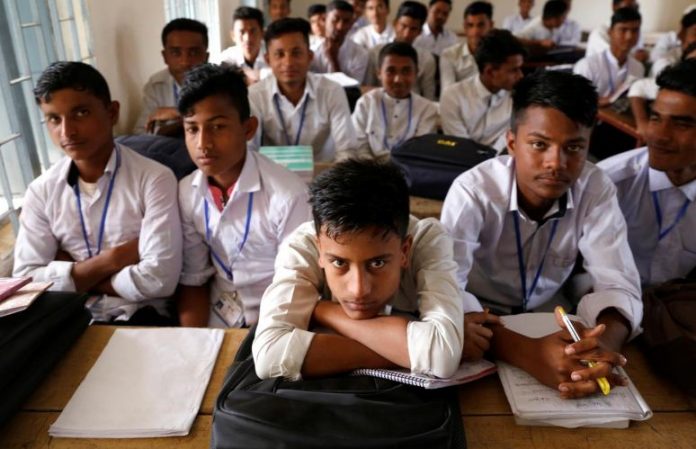
DHAKA – Sixteen-year-old Kefayat Ullah walked to his school in southern Bangladesh in late January, as he had done most days for the previous six years, to find that – despite being one of the top students in his class – he had been expelled.
A government investigation had outed him, along with dozens of his classmates, as a Rohingya refugee, a member of the mostly stateless Muslim minority from neighboring Myanmar.
“Our headmaster called us into his office and told us that there’s an order that Rohingya students have no rights to study here anymore,” said the teenager, a small boy with cropped hair and a faint moustache. “We went back home crying.”
For years, Bangladeshi schools have quietly admitted some of the Rohingya who live as refugees in sprawling camps on the country’s southern coast, and whose numbers have swelled to more than 1 million since violence across the border in 2017. .
But the new influx has tested the hospitality of the Bangladeshi government, leading them to apply tighter controls on the population. (Reuters)



